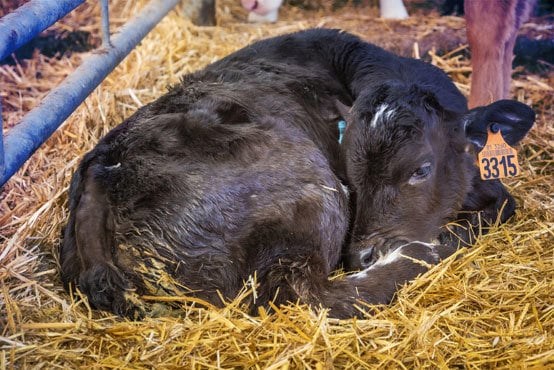By Ndumiso Tshuma
An alarming rise in scours—a foul-smelling diarrhoea affecting calves, kids, and lambs—has prompted concern among local farmers.
This condition, marked by whitish and sometimes frothy stools in younger animals and darker droppings in older ones, can lead to severe dehydration and even death if left untreated.
Nqobani Manyabi, an animal science specialist at EL Ganado Consultancy, identified poor hygiene, contaminated feed and water, and unsanitary living conditions as the main culprits.
“Inadequate sanitation exposes livestock to harmful bacteria, viruses, and parasites, resulting in the surge of scours cases,” he said.
Bacterial infections such as Escherichia coli, Salmonella, Clostridium perfringens, and Campylobacter jejuni are significant contributors.
These pathogens multiply in the gut and release toxins that cause diarrhoea. Protozoan parasites, including Coccidia, and internal worms exacerbate the issue by damaging the intestinal lining and depleting nutrients, leading to malnutrition and scours.
“Sudden diet changes, especially introducing unfamiliar feeds, can disrupt gut flora and cause digestive upset. Overfeeding or providing improper nutrition, such as high-protein or grain-rich feeds, can also overwhelm the digestive system,” Manyabi added. Stressors like transport, weather changes, and overcrowding weaken immunity, further predisposing animals to the disease.
Manyabi outlined a three-pronged approach to managing scours: oral electrolyte rehydration, sulfonamide antibiotics, and improved housing and hygiene practices.
“Calves and kids with diarrhoea lose fluids, minerals, and energy rapidly, especially if they stop drinking due to fever. They don’t die from the infection itself but from dehydration, which leaves them extremely weak,” he explained.
For rehydration, Manyabi recommended readily available solutions like Electromix WS, Electroguard NF Gel, Lectade, and Replensol.
Bacterial infections, he noted, can be treated with sulfonamide antibiotics, tailored to the animal’s age and condition. Effective treatments include Intertrim LA Injection (Sulfadoxine + Trimethoprim), Intertrim Injection (Sulfamethoxazole + Trimethoprim), and Sulfa-333 Injection (Sulfadimidine).
Manyabi emphasised the importance of cleanliness to prevent further spread. “Farmers must clean scours from the animal’s backside to prevent fly strike and clear or cover the droppings to stop flies from spreading infection,” he said.

